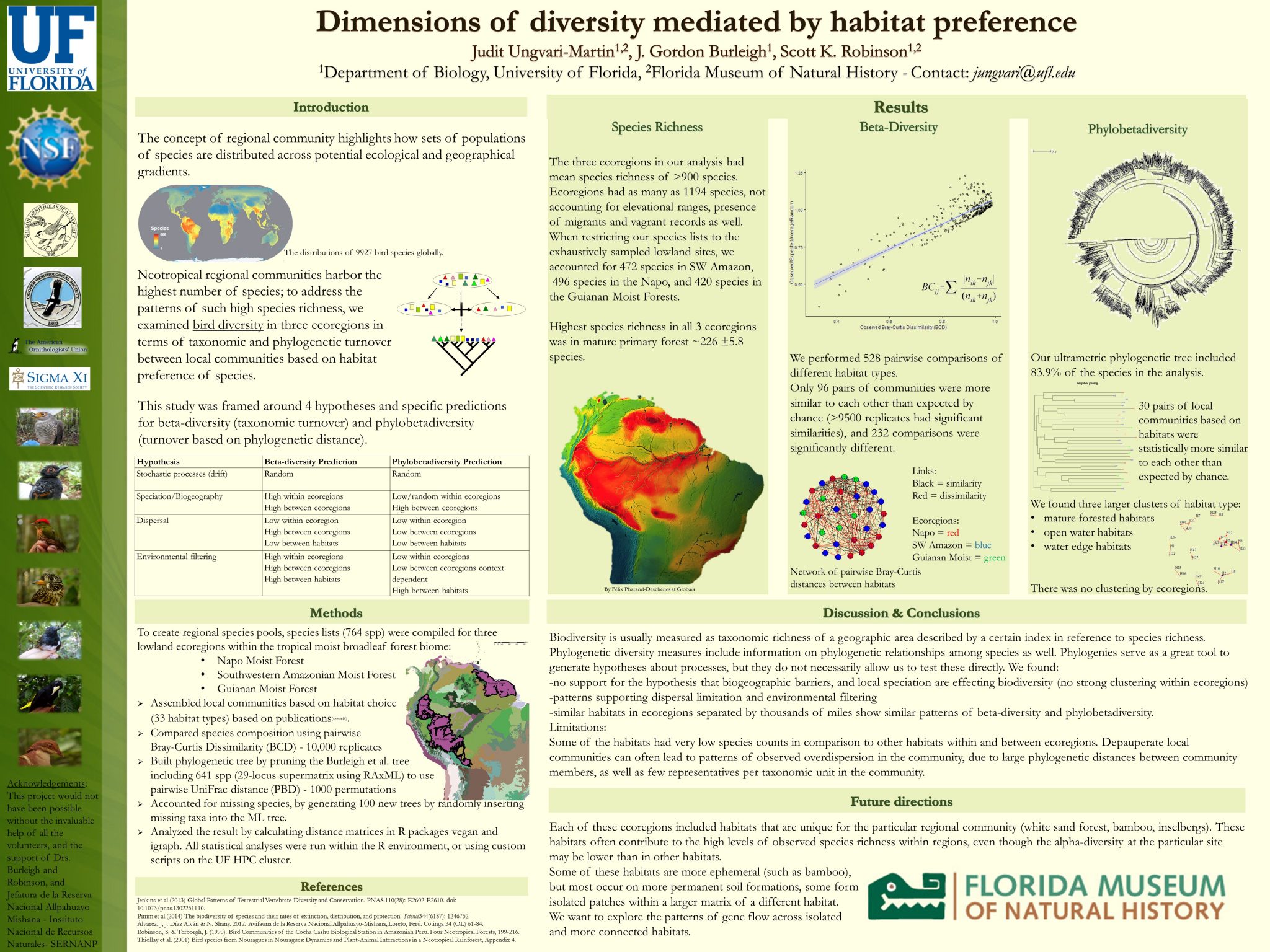
Dimensions of diversity mediated by habitat preference
Authors: Judit Ungvari-Martin, J. Gordon Burleigh, Scott K. Robinson
- Biodiversity is usually measured as taxonomic richness of a geographic area described by a certain index in reference to species richness. Phylogenetic diversity measures include information on phylogenetic relationships among species as well.
- We performed 528 pairwise comparisons of different habitat types in three ecoregions in the lowland tropical moist broadleaf biome.
- We found patterns supporting dispersal limitation and environmental filtering.
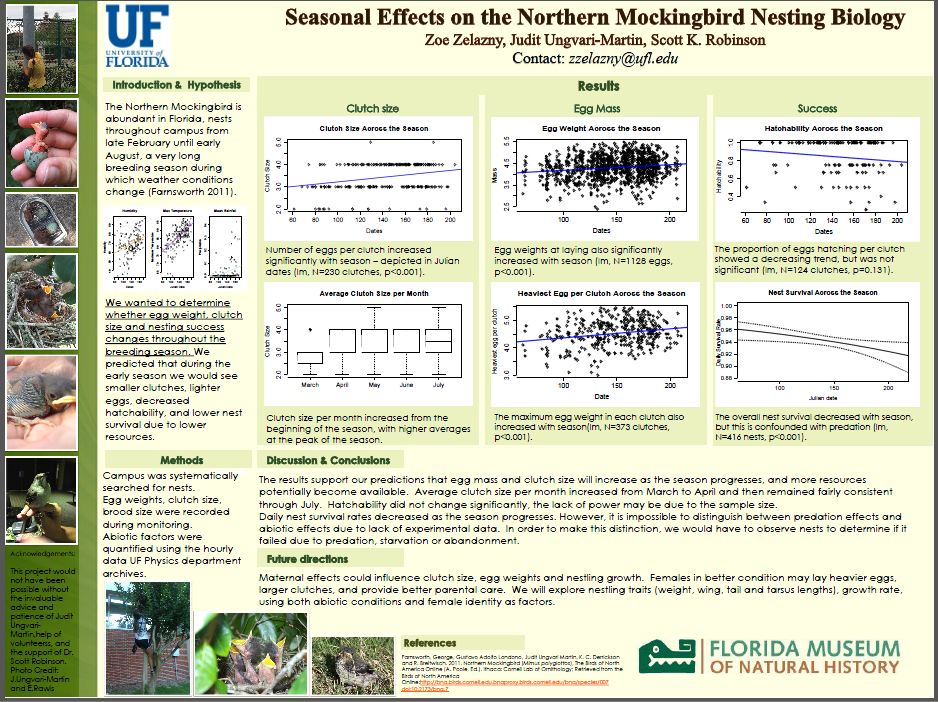
Seasonal Effects on the Northern Mockingbird Nesting Biology
Authors: Zoe Zelazny, Judit Ungvari Martin, Scott K. Robinson
- Showcasing Zoe’s undergraduate thesis project on how egg weights, clutch size and nesting success change throughout the long breeding season.
- The results support our predictions that egg mass and clutch size will increase as the season progresses, and more resources potentially become available. Hatchability did not change significantly, and daily nest survival rates decreased as the season progresses.
- Zoe won best undergraduate poster in the Biology Department’s Undergraduate Research Assistantship program in 2015.
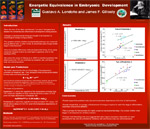 Energetic Equivalence in Embryonic Development
Energetic Equivalence in Embryonic Development
Authors: Gustavo A. Londoño and James F. Gillooly
•Since the time of Von Baer and Haeckel, “evo-devo” biologists have
debated the similarities and differences in development among species.
• Changes in developmental timing are thought to be important to morphological change during evolution.
• The question remains whether developmental pathways are conserved among different taxa. In other words, do all animals pass through similar stages of development?
• Here we evaluate differences in the developmental timing of one easily measured character shared by most higher organisms, time to first heartbeat (TFH).
• We extend the model of Gillooly et al. (2002) to test the hypothesis that differences in the TFH are controlled by metabolic rate, and thus by body size and temperature.
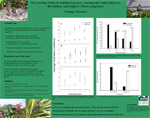 Why and how birds eat nestling fecal sacs: Experimental manipulations on the Northern mockingbird (Mimus polyglottos)
Why and how birds eat nestling fecal sacs: Experimental manipulations on the Northern mockingbird (Mimus polyglottos)
Author: Monique Hiersoux
Coprophagy has been documented in many species, and can occur in two ways: an individual can consume its own feces or another individual’s.
Among birds, coprophagy takes place during the nestling stage; parents eat the feces of their nestlings.
Three hypotheses have been proposed:
1) Eating a fecal sac is cheaper than removing it.
2) Fecal sac consumption provides nutritional benefit.
3) Fecal sacs important for water conservation in parents.
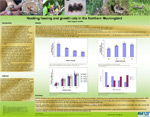 Nestling feeding and growth rate in the Northern Mockingbird
Nestling feeding and growth rate in the Northern Mockingbird
Author: Judit Ungvari-Martin
The reproductive period of all organisms is a critical stage, affecting the fitness of individuals and the viability of populations (Stearns 1992). Among passerine birds, the nestling period is especially important because nestlings are extremely vulnerable and one or both parents are forced to spend approximately two weeks feeding nestlings. Adult behavior during this stage is critical not only for nestling growth but also because trips to and from the nest can draw the attention of predators and reduce the chances of nest success (Skutch 1949, Martin et al. 2000).
The Northern Mockingbird (Mimus polyglottos) is distributed throughout North America. The reproductive period in Florida takes place between March and July, both parents build the nest and participate in the nestling care, but only the females incubate. The purpose of this study was to examine the effects of brood size (number of nestlings) and nestling age on feeding rates, the seasonal variation in brood size and its effect on the growth rates of nestlings, and the seasonal variation in ectoparasite load of the nests.
Specifically, I wanted to evaluate if the feeding rates change as brood size increases, and if this had an effect on nestling growth rates. Furthermore, we wanted to assess the variation throughout the breeding season, and between male and female investments.
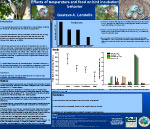 Effects of temperature and food on bird incubation behavior
Effects of temperature and food on bird incubation behavior
Author: Gustavo A. Londoño
• The reproductive period of all organisms is a critical stage, affecting the fitness of individuals and the viability of populations.
• In birds, adult behavior during incubation is critical not only for egg incubation but because trips to and from the nest can draw the attention of predators and reduce the chances of nest success (Skutch1949, Martin et. al 2000).
• Minimizing such trips can be difficult for species that live in hot or cold environments, where keeping the eggs at a suitable temperature for embryonic development requires energy expenditures above the adult’s resting metabolic rate (Vleck 1981, Williams 1996). The extra foraging trips required to meet increased energetic demands may be especially important in species that have uniparental incubation (only one sex incubates).
• I studied determinants and consequences of incubation behavior in the Northern Mockingbird (Mimus polyglottos), a species in which only females incubate and males do not provide food to the females.